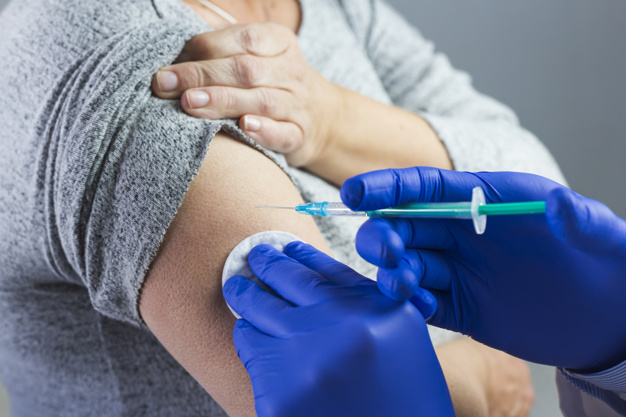Contraceptive Injection
Contraceptive injection:
It is a progestogen hormones injection to prevent pregnancy by:
– Preventing releasing the egg
– Thickening the cervical mucus so the sperm can not reach the egg
– Thinning the uterus wall so the fertilized egg can not implant itself
Its effectiveness is more than 99%.
Advantages:
– Suitable for ladies who contraindicate with estrogen.
– Useful for ladies who find it difficult to remember to take a pill every day.
– It is not affected by other medications.
– May reduce menstrual flow and pain.
– Can decrease the risk of endometrial cancer.
– Can reduce pelvic pain caused by endometriosis.
– May reduce the risk of developing pelvic inflammatory disease
Disadvantages/Side effects:
– Does not protect against sexually transmitted diseases.
– Back to fertility after the injection is within 3 – 10 months.
– Unscheduled bleeding, acne (1-5%), hair growth in unwanted areas or head hair loss (1-5%), headache (17%), dizziness (6%), bloating (2%), decreased libido (6%) but they usually decrease within the few first months.
– Possibility of site reactions such as redness, bruising, blistering (2-20%)
– If used for a long period of time, it may cause thinning of the bones.
Contraindications:
1. Liver tumors or disease
2. Current or past history serious blood clots
3. History or current breast cancer
4. Abnormal vaginal bleeding (between periods or after intercourse)
5. Allergy to injection components
6. Possibility of pregnancy
7. History of heart disease, arterial disease or stroke
8. Risk factors or history of frailty
9. Lupus
10. Current use of aminoglutethimide
When to take it?
– It is given every 3 months.
– During the first 7 day of the menstrual cycle, the lady is protected immediately.
– On any other day, It is advised to use another contraception method like condoms for 7 days.
– After birth:
– Less than 21 days after birth: effective immediately.
– 21 days or more days after birth: it is advised to use another contraception method like condoms for 7 days.
– If not breastfeeding, given at any time.
– If breastfeeding, usually given after 6 weeks.
– If the lady is late for more than 2 weeks for the next injection, it is advised to take a pregnancy test first, and use another back-up contraception method for 7 days.
The lady should go to the hospital if:
– Signs of infection such as bleeding, pus, prolonged pain, redness, itching at the injection site
– Heavy bleeding
– Trouble breathing
– Severe lower abdominal pain
– Depression
To read more about other contraceptive methods, Click Here



